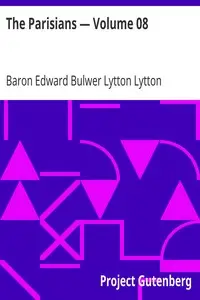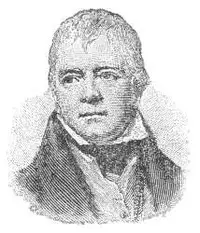"Vittoria — Volume 5" by George Meredith is a historical fiction novel set in a Europe consumed by political unrest. The story plunges into the life of Vittoria, a woman entangled in a web of love, honor, and violent conflict, particularly through her connection with the outlaw Angelo Guidascarpi. As Captain Weisspriess relentlessly hunts Vittoria, believing she is aiding Angelo's escape, his actions expose a complex mix of power and personal ambition. A climactic duel between Weisspriess and Angelo underscores themes of justice and devotion, while Vittoria's resilience is tested as she navigates dangerous circumstances involving betrayal and the pursuit of freedom.

Vittoria — Volume 5
By George Meredith
In a world of political turmoil, a woman's fight for freedom ignites a dangerous game of cat and mouse, testing the boundaries of love and loyalty amidst violence and betrayal.
Summary
About the AuthorGeorge Meredith was an English novelist and poet of the Victorian era. At first, his focus was poetry, influenced by John Keats among others, but Meredith gradually established a reputation as a novelist. The Ordeal of Richard Feverel (1859) briefly scandalised Victorian literary circles. Of his later novels, the most enduring is The Egoist (1879), though in his lifetime his greatest success was Diana of the Crossways (1885). His novels were innovative in their attention to characters' psychology, and also portrayed social change. His style, in both poetry and prose, was noted for its syntactic complexity; Oscar Wilde likened it to "chaos illumined by brilliant flashes of lightning". Meredith was an encourager of other novelists, as well as an influence on them; among those to benefit were Robert Louis Stevenson and George Gissing. Meredith was nominated for the Nobel Prize in Literature seven times.
George Meredith was an English novelist and poet of the Victorian era. At first, his focus was poetry, influenced by John Keats among others, but Meredith gradually established a reputation as a novelist. The Ordeal of Richard Feverel (1859) briefly scandalised Victorian literary circles. Of his later novels, the most enduring is The Egoist (1879), though in his lifetime his greatest success was Diana of the Crossways (1885). His novels were innovative in their attention to characters' psychology, and also portrayed social change. His style, in both poetry and prose, was noted for its syntactic complexity; Oscar Wilde likened it to "chaos illumined by brilliant flashes of lightning". Meredith was an encourager of other novelists, as well as an influence on them; among those to benefit were Robert Louis Stevenson and George Gissing. Meredith was nominated for the Nobel Prize in Literature seven times.

















